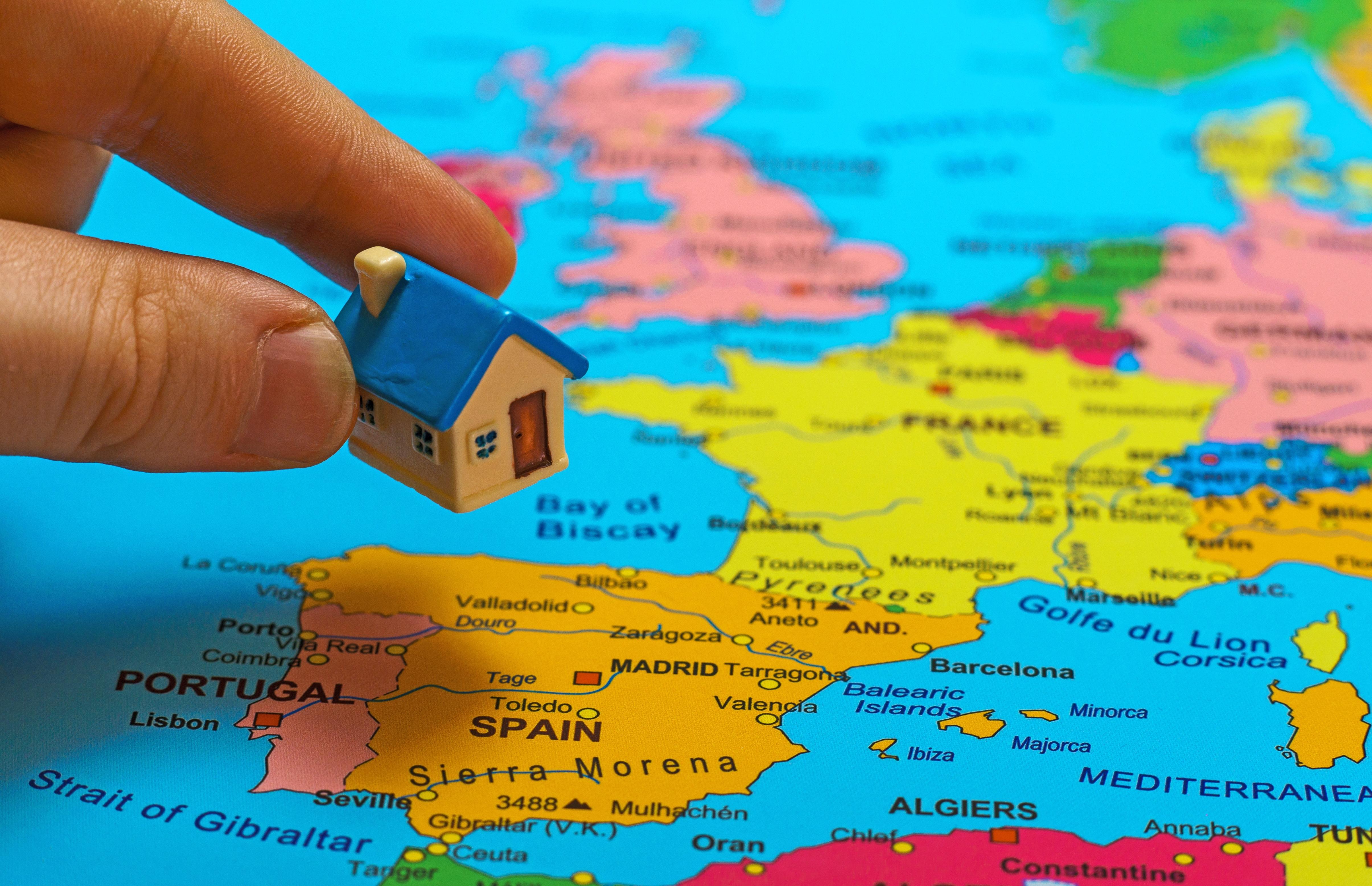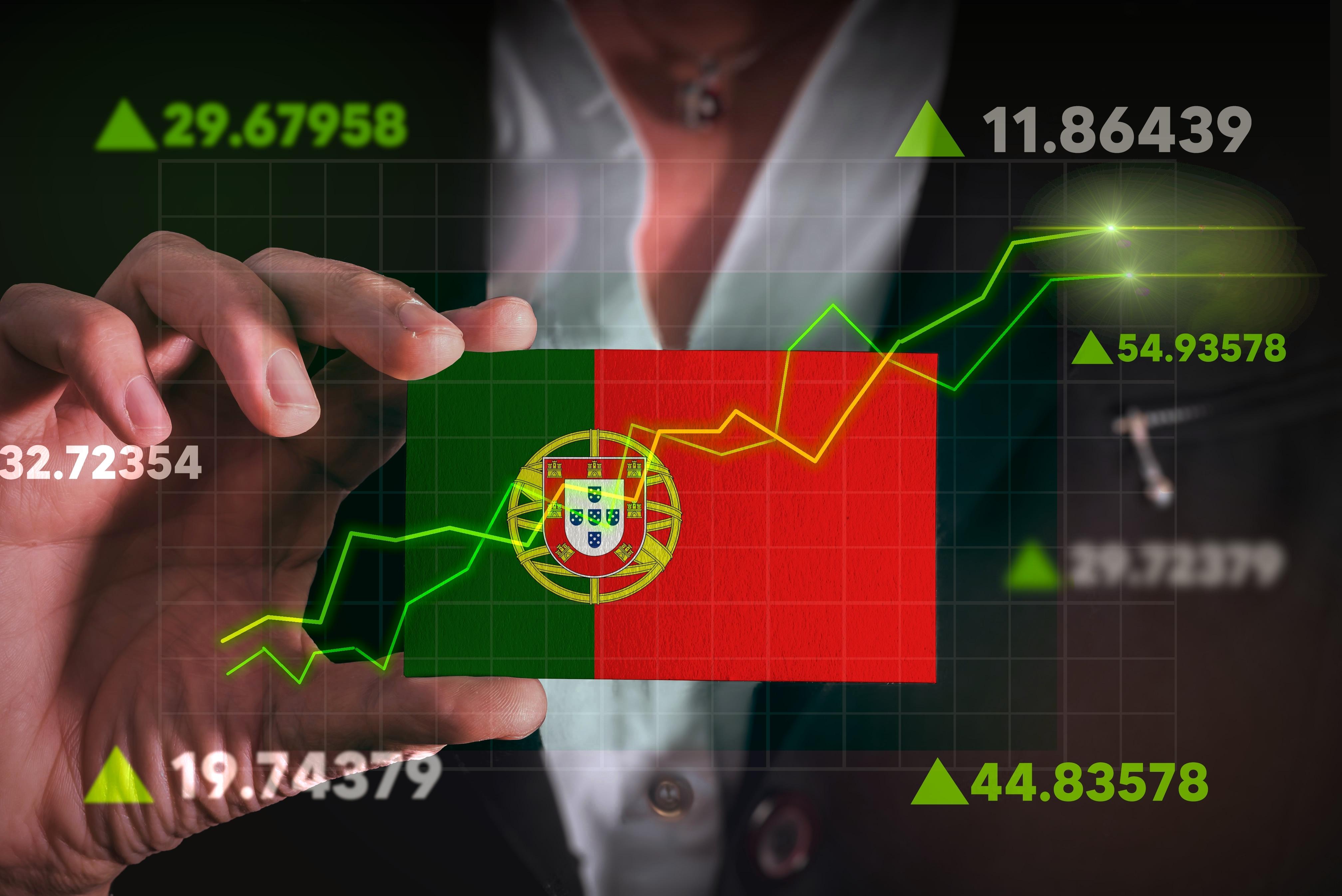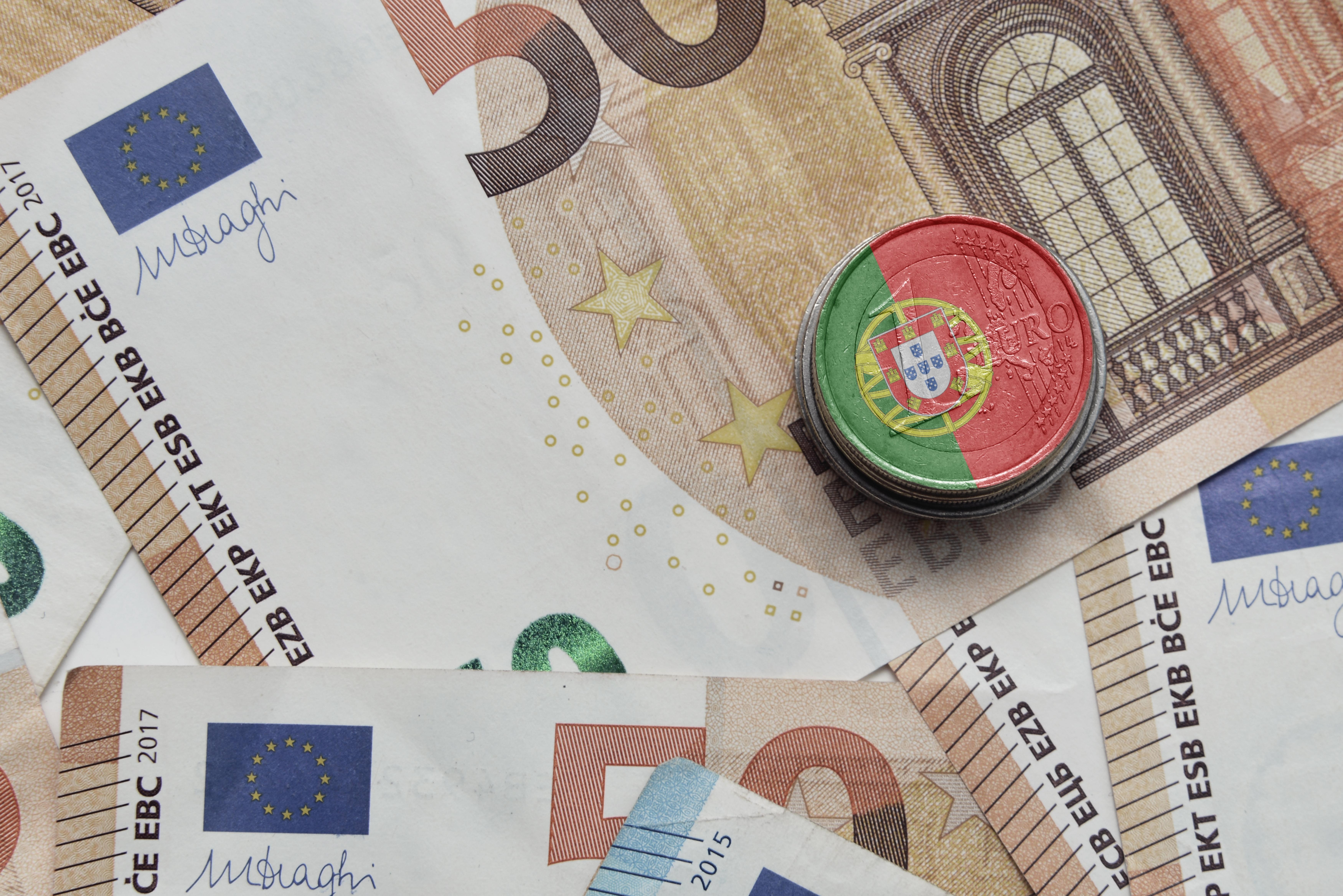Blog • Published on:October 21, 2024 | Updated on:October 21, 2024 • 11 Min
How Portugal Golden Visa Boosts Economy and Attracts Investment Funds
How Portugal's Golden Visa impacts the economy has been evident since the program's launch in October 2012. By offering residence permits to non-EU citizens in exchange for qualifying investments, the initiative has attracted substantial foreign capital and transformed sectors like real estate. This influx of investment has been a game-changer, driving economic growth and boosting demand in various industries across the country.
This article will explore the economic effects of the Golden Visa program and its evolution over the past decade, drawing on insights from recent studies and economic data.
How Portugal Golden Visa Impacts the Economy as a Catalyst for Recovery
The introduction of the Golden Visa program came at a critical juncture in Portugal's economic history. In the aftermath of the 2008 global financial crisis, Portugal, like many other European nations, was grappling with economic stagnation, high unemployment, and a sluggish real estate market.
The Golden Visa initiative was designed as a strategic tool to attract foreign capital and stimulate economic growth.
The program's impact was swift and substantial. According to data from the Portuguese Immigration and Borders Service (SEF), the Golden Visa scheme attracted over €6.8 billion in total investment between 2012 and 2023.
This influx of foreign capital provided a much-needed boost to the Portuguese economy, injecting liquidity into various sectors and contributing to the country's economic recovery.
Real Estate Market Boom
The Golden Visa program had a profound impact on Portugal's real estate market, especially in the early years of the program. According to a study by the IZA Institute of Labor Economics, the number of properties sold at the €500,000 price point, the minimum investment required for a Golden Visa, increased by a remarkable 60% compared to pre-2012 levels.
What is the Bunching Effect of Portugal's Golden Visa Premium?
This "bunching effect" clearly demonstrates the program's influence on housing prices as sellers strategically priced properties to attract Golden Visa investors.
The researchers also identified a "Golden Visa premium" of around €38,000 on average for properties at the €500,000 investment level. This suggests that the promise of gaining an EU residence permit through the program boosted housing values by over 10% in the high-end market.
Interestingly, the study found that both Portuguese and non-EU buyers were responsible for the bunching effect, while EU buyers did not significantly contribute to this trend. This indicates that the program's visibility and benefits influenced domestic buyers and sellers, leading to an overall increase in transaction prices.
Data from SEF highlights the sheer scale of the Golden Visa program's impact on the real estate sector. From 2012 to 2023, real estate investments under the program totaled an impressive €5.8 billion, accounting for the vast majority of all Golden Visa investment.
In the program's peak year of 2014, real estate investments reached €840 million, demonstrating the program's ability to attract significant foreign capital to the housing market.
The Golden Visa program's launch coincided with a period of tremendous growth in Portugal's housing market. According to Eurostat, property prices in Portugal surged by 42% from 2012 to 2023, outpacing the EU average of 20%.
While factors such as economic recovery and low interest rates also fueled this growth, the Golden Visa program played a significant role in driving demand and investment in the real estate sector.
Portugal did decide to scrap the real estate investment option in 2024, though, and now the investment fund option is the most popular investment category under the program.

The Golden Visa program significantly boosted Portugal's real estate market, with a 60% increase in properties sold at the €500,000 price point, the minimum investment required, compared to pre-2012 levels, according to a study by the IZA Institute of Labor Economics.
Foreign Direct Investment and Economic Growth
The Golden Visa program has been a major driver of foreign direct investment (FDI) in Portugal, contributing to the country's economic growth and recovery.
Data from SEF reveals the impressive growth in FDI through the program over the years. In the first two years of the program's operations (2012-2013), the total investment amounted to €306 million.
By 2019, annual investment had grown to €663 million, more than doubling the initial figures.
The program's positive impact on FDI extends beyond the real estate sector. Capital transfers, which include investments in venture capital and investment funds, have grown substantially in recent years.
In 2023, capital transfers amounted to €22.6 million, while venture capital and investment funds attracted €125.5 million.
These figures demonstrate the program's increasing diversification and its ability to channel foreign investment into strategic sectors of the Portuguese economy.
The shift towards investment funds, following the discontinuation of the real estate investment option in 2024, marks an important milestone in the program's evolution.
By focusing on regulated funds that invest in sectors such as technology, healthcare, and renewable energy, the program aims to promote more balanced economic development and support Portugal's long-term growth objectives. The €125.5 million invested in venture capital and investment funds in 2023 alone highlights the potential of this new direction.
The Portuguese economy has shown remarkable resilience and growth in recent years, with the Golden Visa program playing a significant role. The European Investment Bank's 2023 annual economic survey paints a positive picture, with Portugal's GDP growth rebounding to 6.8% in 2022 after the pandemic-induced contraction in 2020.
The EIB projects Portugal's economy to grow in 2024 by a solid 1.7% and in 2025 by 1.9%, outperforming many of its European peers.
The Golden Visa program's contribution to economic growth extends beyond the direct impact of foreign investment. By attracting wealthy individuals and families to Portugal, the program has boosted consumption, supported job creation, and enhanced the country's international profile as an attractive destination for investment and residency.
Why Does Portugal's Golden Visa Program Shift to Fostering Green Growth Through Investment Funds?
As Portugal's Golden Visa program shifts its focus towards investment funds, there's a significant opportunity to align these investments with the country's sustainability goals and contribute to a greener economy.
This transition comes at a crucial time, as both investors and policymakers increasingly prioritise environmental, social, and governance (ESG) factors in their decision-making processes.
The potential for Golden Visa investment funds to drive sustainable development is substantial.
Investment Funds Statistics
According to data from (SEF), investment fund contributions through the Golden Visa program have grown exponentially, from just €3.1 million in 2019 to €125.5 million in 2023. This rapid growth indicates not only strong investor interest but also the capacity to direct significant capital towards sustainable projects and industries.
Portugal's commitment to sustainability is evident in its ambitious climate targets. The country aims to achieve carbon neutrality by 2050, with an interim goal of reducing greenhouse gas emissions by 45-55% by 2030 compared to 2005 levels.
How Investment Funds Impacted Portugal's Economy
Golden Visa investment funds can play a crucial role in supporting these objectives by channeling capital into renewable energy projects, energy efficiency initiatives, and other green technologies.
The European Investment Bank's 2023 survey of Portuguese firms provides insight into the growing awareness of climate-related challenges and opportunities among businesses in Portugal.
The survey found that 79% of Portuguese firms reported weather events as impacting their business, significantly higher than the EU average of 64%. This heightened awareness creates a fertile ground for investments in climate adaptation and mitigation strategies.
Survey Results of Portuguese Firms on the Impact of Investment Funds on Businesses
The survey revealed that Portuguese firms are taking proactive steps to address climate change:
- 95% of Portuguese firms reported taking initiatives to reduce greenhouse gas emissions, compared to 89% across the EU.
- 39% of firms in Portugal set and monitor targets for their own greenhouse gas emissions, in line with the EU average of 42%.
- 88% of Portuguese firms invested in or implemented waste minimisation and recycling measures, significantly higher than the EU average of 67%.
- 63% invested in energy efficiency measures, while 57% invested in renewable energy generation, both exceeding EU averages.

ortugal's economy has demonstrated resilience, with GDP growth rebounding to 6.8% in 2022, and the European Investment Bank projecting steady growth of 1.7% in 2024 and 1.9% in 2025, outpacing many European counterparts, thanks in part to the Golden Visa program's impact.
Projects Supported by Portugal's Golden Visa Investment Funds
These statistics highlight the readiness of Portuguese businesses to embrace sustainable practices, creating numerous opportunities for Golden Visa investment funds to support and accelerate this transition.
By focusing on sustainable investments, Golden Visa funds can contribute to several key areas:
- Renewable Energy: Portugal has already made significant strides in renewable energy, with renewables accounting for 59% of electricity generation in 2022. Investment funds can further support the expansion of solar, wind, and wave energy projects, helping Portugal achieve its goal of 80% renewable electricity by 2030.
- Energy Efficiency: With 47% of Portuguese firms investing in energy efficiency measures in 2023, there's clear demand for capital in this area. Funds can support building retrofits, industrial process improvements, and smart energy management systems.
- Sustainable Transportation: Investment in electric vehicle infrastructure, public transportation improvements, and sustainable urban mobility solutions can help reduce emissions from the transport sector.
- Circular Economy Initiatives: Given the high percentage of Portuguese firms focusing on waste minimisation and recycling, there's potential for funds to support innovative circular economy projects that reduce waste and improve resource efficiency.
- Climate Tech Startups: Portugal's growing startup ecosystem, particularly in Lisbon, provides opportunities for funds to invest in innovative companies developing climate solutions.
- Sustainable Agriculture and Forestry: Investments in precision agriculture, sustainable forestry practices, and agtech can help reduce emissions from the agricultural sector while promoting rural development.
Real Estate Investment Vs. Investment Funds
The shift towards investment funds in the Golden Visa program aligns well with these sustainability goals.
Unlike direct real estate investments, funds can more easily diversify across multiple sustainable projects and sectors, potentially maximising both environmental impact and financial returns.
The structure of investment funds allows for greater oversight and reporting on sustainability metrics, ensuring that investments truly contribute to Portugal's green growth objectives. This transparency can be particularly appealing to environmentally conscious investors who want to ensure their capital is making a positive impact.
By channeling Golden Visa investments into sustainable funds, Portugal can position itself as a leader in green finance, attracting not only investment but also expertise in sustainable technologies and practices.
This approach can create a virtuous cycle, where initial investments in sustainable projects attract further capital and talent, accelerating Portugal's transition to a low-carbon, resilient economy.
A Sustainable Path to Success
Portugal's Golden Visa program has proven to be a resounding success over the past decade, attracting over €6.8 billion in foreign investment and playing a crucial role in the country's economic resurgence. As the program evolves, it is positioning itself at the forefront of sustainable and dynamic investment opportunities, making it increasingly attractive to forward-thinking investors.
The program's shift towards investment funds, which saw contributions grow from €3.1 million in 2019 to €125.5 million in 2023, aligns perfectly with global trends favouring green and sustainable investments. This evolution comes at a time when Portugal is committed to ambitious climate goals, aiming for carbon neutrality by 2050.
The country's businesses are already embracing this shift, with 95% of firms taking initiatives to reduce greenhouse gas emissions and 88% investing in waste minimisation and recycling.
For potential investors, this means the Golden Visa program offers more than just a path to residency – it provides an opportunity to participate in Portugal's green economic transformation.
Investment funds under the Golden Visa scheme are well-positioned to support renewable energy projects, energy efficiency initiatives, sustainable urban development, and innovative startups in the clean tech sector.

Unlike direct real estate investments, funds can diversify across multiple sustainable sectors, offering greater oversight, transparency, and potential for both environmental impact and financial returns, positioning Portugal as a leader in green finance and attracting investment and expertise in sustainable technologies.
Relation Between Economic Priorities and Investment Funds
The program's sustained success and adaptability demonstrate its resilience and long-term viability. By aligning with Portugal's economic priorities and global sustainability trends, the Golden Visa program is likely to remain a key tool in attracting foreign investment for years to come. This continuity and clear future direction provide reassurance to investors considering a long-term commitment to Portugal.
As the world increasingly prioritises ESG (Environmental, Social, and Governance) factors in investment decisions, Portugal's Golden Visa program offers a unique proposition. Investors can potentially achieve their residency goals while also contributing to meaningful sustainable development and potentially benefiting from the growth in green industries.
Portugal's Golden Visa program has not only proven its worth over the past decade but is also well-prepared for the future. Its focus on sustainable and dynamic investments positions it as an attractive option for investors looking to combine residency benefits with impactful, forward-looking investment opportunities.
As Portugal continues its journey towards a greener, more innovative economy, Golden Visa investors have the chance to be part of this exciting transformation, potentially reaping both financial and social returns on their investment.
It’s Time to Make a Move
To know more about how Portugal’s Golden Visa impacts economy and how this can benefit you, your family, and your wealth, contact Savory & Partners today to book a comprehensive consultation with one of our EU residency experts.
Written By

Andrew Wilder
Andrew Wilder is a multifaceted author on Business Migration programs all over the globe. Over the past 10 years, he has written extensively to help investors diversify their portfolios and gain citizenship or residency through innovative real estate and business investment opportunities.
Related Articles









Recently Published









Book a free consultation


